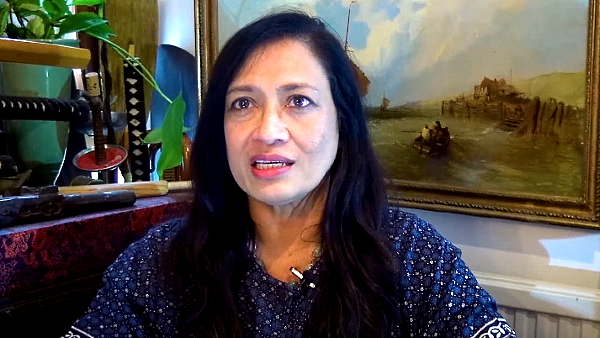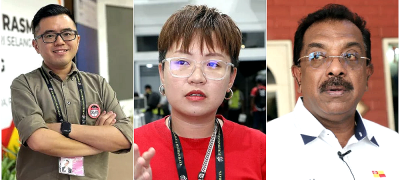Bear in mind that if we don’t vote, we are actually letting those who come out and vote decide on our behalf, as we have ceded our right to choose a more capable representative or government.
Next Saturday will be the polling day for the six state elections,with parties and alliances geared up to campaign and their flags fluttering in the wind all over town.
While this may give an impression that the election war is gaining heat, the reality is that public sentiment remains largely lukewarm.
Voters do not seem to be very passionate about next week’s elections, and this may dampen the voter turnout, exerting much pressure on contesting parties and their candidates, to whom every vote counts.
The voter turnout will determine the outcome of the six state elections, and this is of paramount importance to people living in these states.
It is generally believed that the voter turnout for next week’s state elections is going to be significantly lower than last year’s general election, especially in view of the fact that they are held just a little more than seven months from the 15th general election.
This is because voters will stay away from the polling stations owing to political or election “fatigue,” or the feeling that the elections would have nothing much to do with them and would therefore not give them a heed, hence the expected poor voter turnout.
Voter turnout has been declining steadily in recent years. In the 2013 general election, the voter turnout was an encouraging 84.6%, down slightly to 83.32% in 2018, and only 73.89% last year.
Statistics show that voter turnout for state elections not held simultaneously with the general elections would be 10 to 15 percentage points lower.
According to Bersih’s estimates from last year’s general election, the voter turnout for this month’s state elections is expected to be just around 59-64%.
The voter turnout for the state elections in Melaka in 2021 and Johor last year was significantly lower.
Statistics also show that voter turnout for Chinese Malaysians in last year’s general election was 14% lower than previously, while the Malays were approximately 6% lower.

Some of the Chinese voters could have been disappointed by the developments after the 2018 general election, such that they decided not to go out and vote.
They might think that their votes wouldn’t probably change the big picture in the first place. Sure enough some cast spoilt votes as a form of protest.
Please bear in mind that all these factors could eventually affect the election outcome and whether the country will become better or worse over the next few years.
The participation of postal voters will also affect the overall voter turnout.
DAP’s candidate for Subang Jaya Michelle Ng revealed that the number of registered postal voters in her constituency plunged by a whopping 70% compared to last year’s general election. The situation in other constituencies is not expected to be any better, either.
Other than oversea and outstation voters who appear to be not so keen to vote, poor efficiency on the part of the election commission has also prompted postal voters to give up their rights.
As a matter of fact, there are plenty of passionate Malaysians here and abroad doing everything they can to help bring back ballot papers to the country on the polling day, and we should make good use of such mechanism instead of staying away on the excuse of the EC’s poor efficiency.
There are almost 10 million eligible voters for the coming state elections. We must understand that democracy will only be meaningful if majority of people come out to vote.
Even though a political alliance may win an election as a result of low voter turnout and its legitimacy will still remain intact, it lacks majority representation.
Moreover, the outcome in marginal seats could be decided by a handful of swing voters or some staunch supporters of a specific party, thus not reflecting the preference of the broad electorate.
To boost the voter turnout, Bersih and Astro Awani have teamed up to initiate the #VoteLokal campaign to enhance public awareness, but in the long term, the government and various NGOs must strive to strengthen public education on the importance of elections.
While such a proposal has been voiced up numerous times in past elections, it is often ditched soon after the elections.
Bear in mind that if we don’t vote, we are actually letting those who come out and vote decide on our behalf, as we have ceded our right to choose a more capable representative or government.
We must value this most basic way of taking part in nation-building, and only so will our voices be heard and appreciated.
Put it in a different perspective, holding the general and state elections separately could be seen as a mid-term appraisal of the government’s and the opposition’s performance thus far, while political parties can garner public views through these elections to serve as a reference for their governance or supervisory mechanism.
For the future of this country and ourselves, we as voters must not abandon our right to vote.
If even those residing overseas would take the trouble to fly back here to vote, there’s no good reason for those staying in Malaysia not to do so.
ADVERTISEMENT
ADVERTISEMENT








































